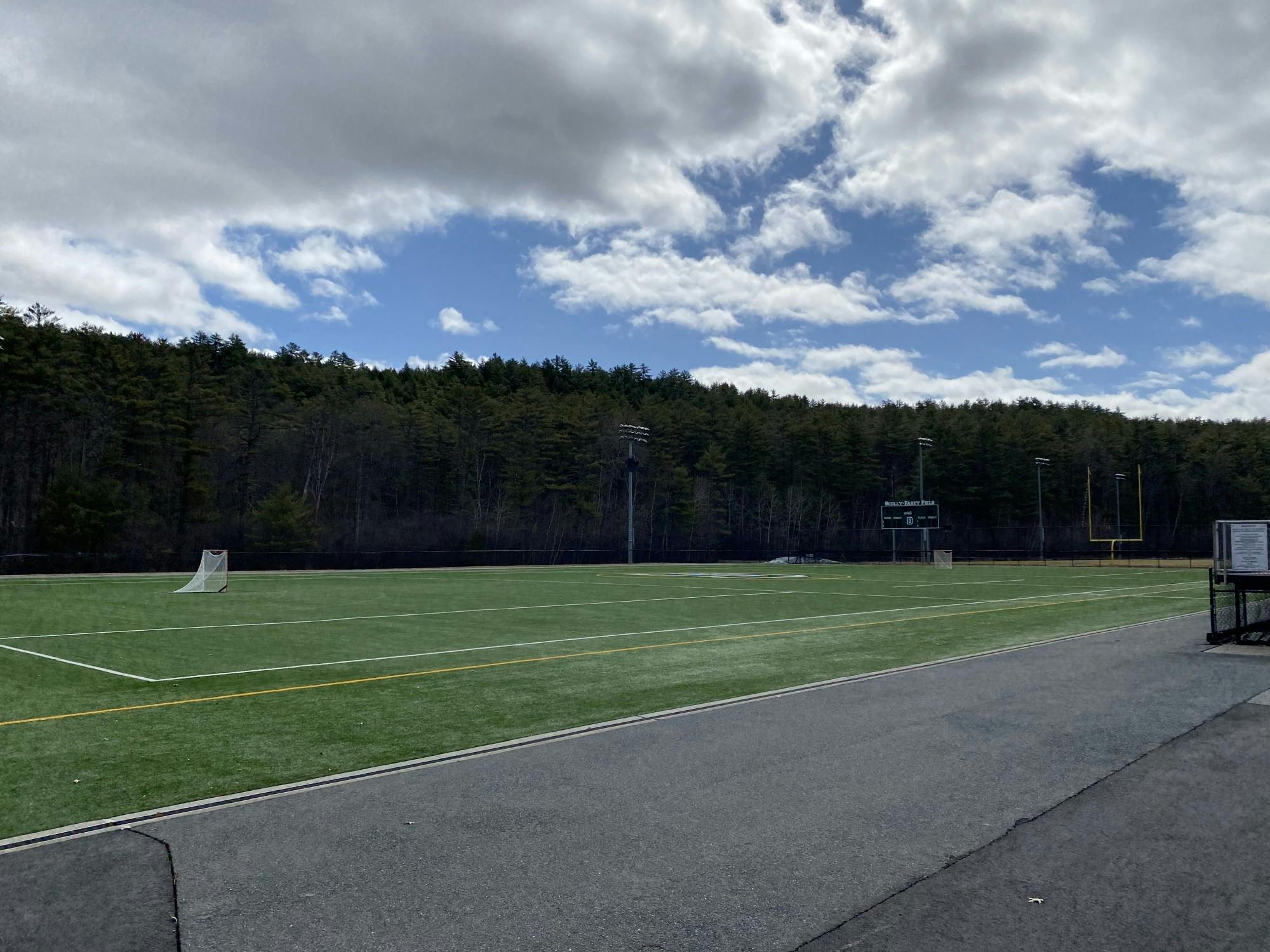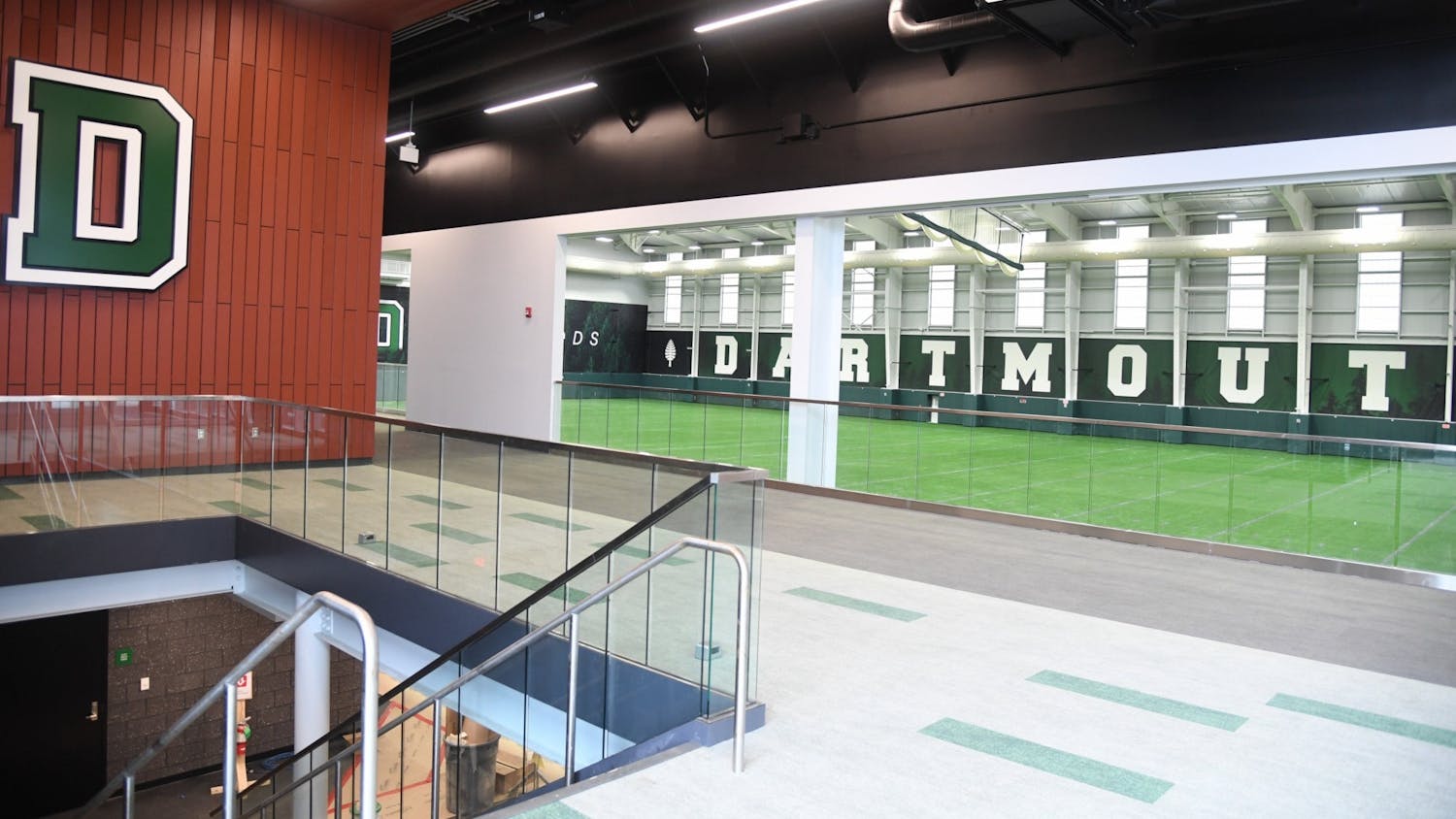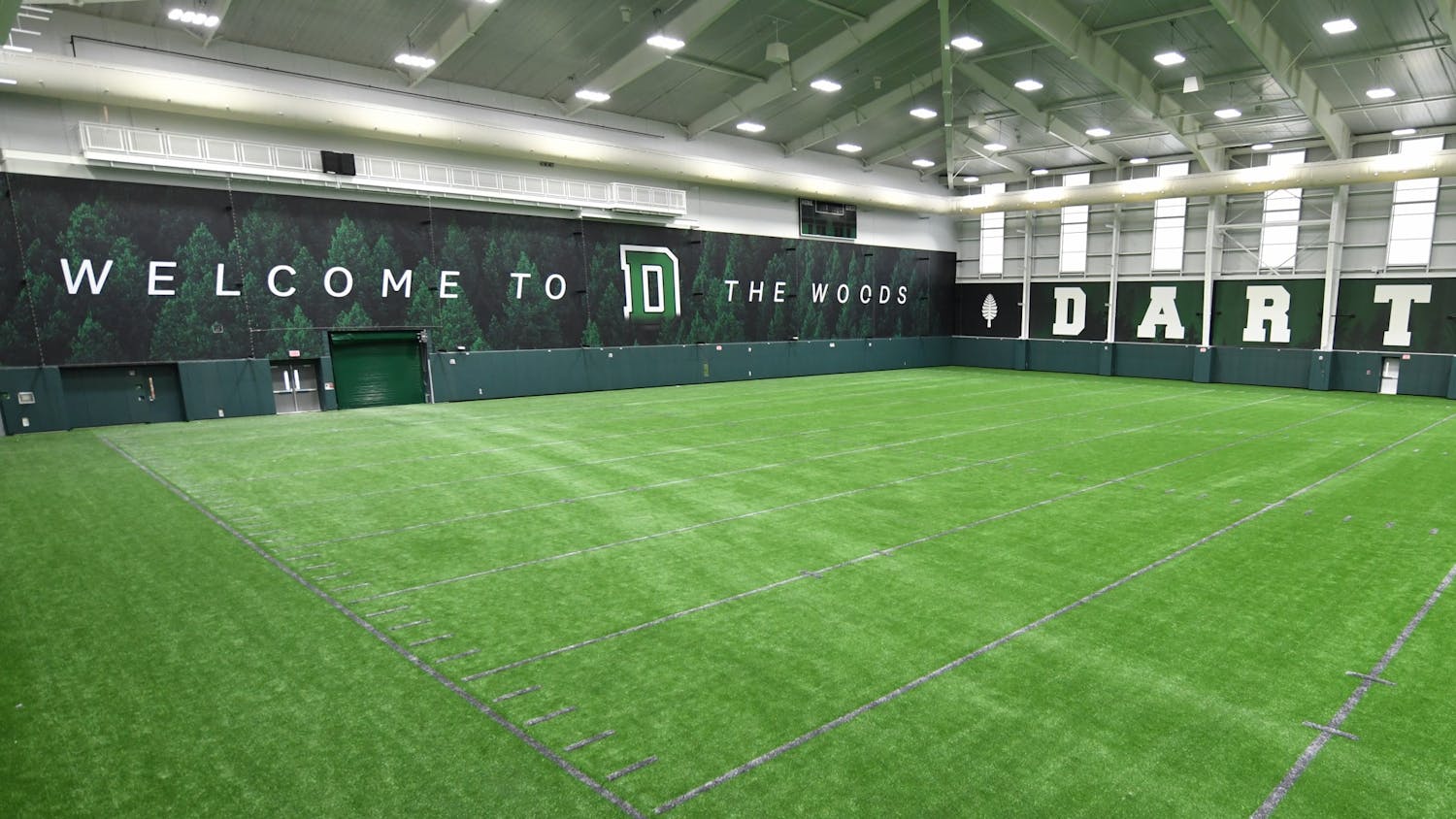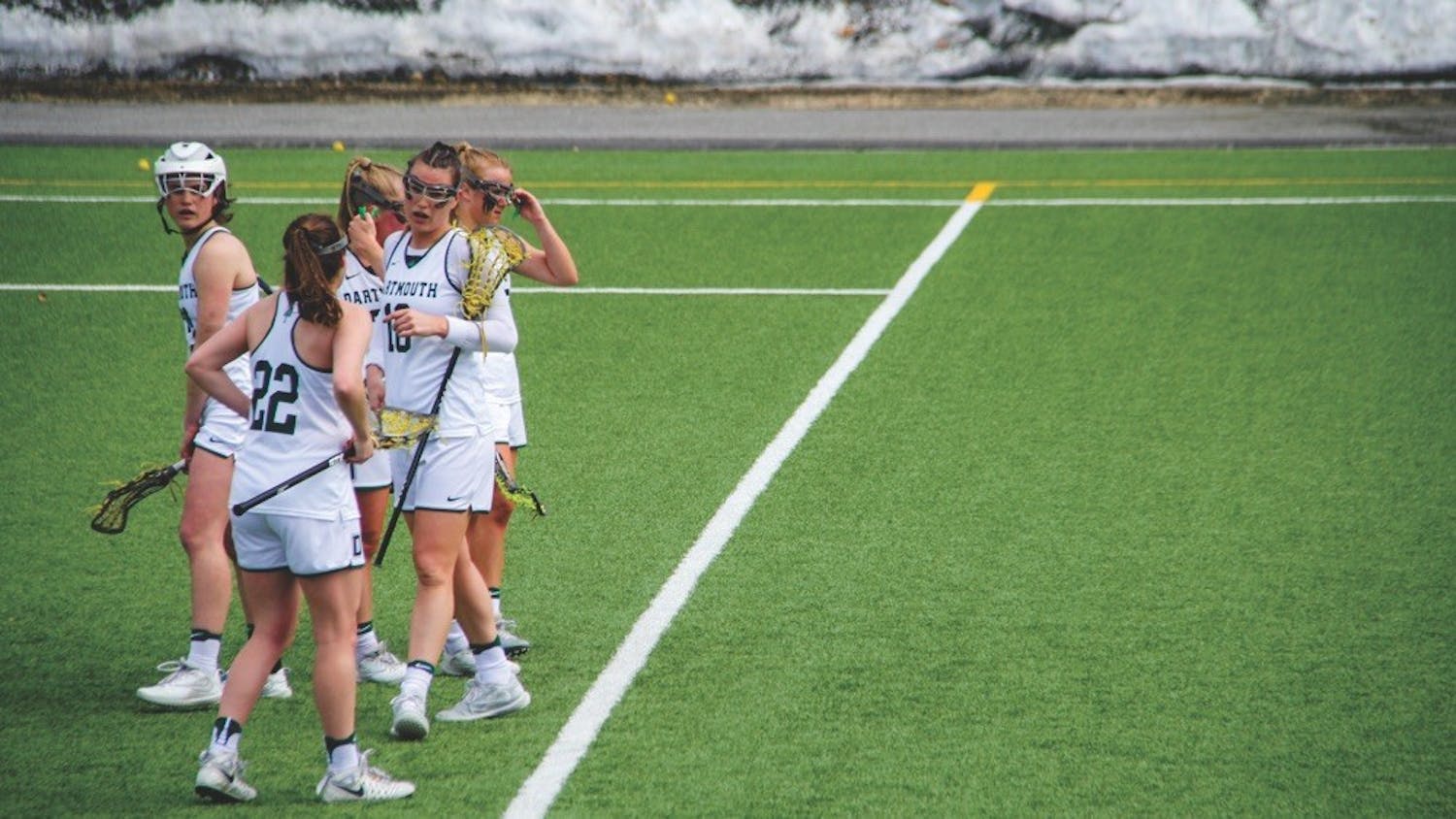As Dartmouth sports teams begin spring practices amid their fourth consecutive season impacted by COVID-19, warmer weather is allowing for the opening of some outdoor facilities and, for Dartmouth student-athletes, brings with it the promise of a return to competition in the near future. Despite the Ivy League’s decision to cancel conference play this spring, Dartmouth teams will be allowed by the conference to compete in non-Ivy competitions within 100 miles of Hanover, Provost Joseph Helble said in a “Community Conversations” livestream Wednesday. Softball, men’s and women’s track and field and men’s and women’s tennis are scheduled to begin competing on April 24, while men’s lacrosse and possibly heavyweight rowing are expected to begin competing later in the spring. Spectators will not be allowed at those competitions, and details are being finalized by the athletics department, according to Helble.
After a term that saw practices forced indoors by cold winter weather, athletes and coaches alike are welcoming the increased practice capacity offered by outdoor spaces. Head athletic trainer Ben Schuler said that the ability to practice outdoors will allow teams to advance more quickly through the athletics department’s three-phase return to sports protocol, in which teams move from individual conditioning and small group workouts to small group practice sessions and finally to larger group practice sessions.
“We were able to start practice on April 6, so we've got maybe a little over a week under our belt so far,” Schuler said. “… We were able to push students outside to our outdoor venues, our softball park or baseball stadium, pretty quickly, which does take some stress off of us.”
Women’s lacrosse head coach Alex Frank said that her team has already seen a difference between this term and the winter. Under the current guidelines for athletics, the team is permitted to use all of the spaces normally available to them, according to Frank.
“We have access to all the athletic facilities, so Floren [Varsity House], the Indoor Practice Facility and our field,” Frank said. “So if we are able to have an inter-squad scrimmage, it will happen on our field, Scully, which we're really excited about.”
Men’s tennis player Peter Conklin ’21 agreed that the ability to practice more freely outdoors has made this season feel much more normal.
“It's been really good so far. It's pretty much felt like it normally does when we're in season, with the only difference being that we just don't have matches,” Conklin said. “Other than, obviously, wearing masks and social distancing, things like that, I would say it's been very, very similar to how it usually is if we were to have a normal season.”
Conklin said that while the team’s competitive matches are still on pause, the return to a more regular practice schedule has boosted the team’s morale.
“Last spring, it sucked,” Conklin said. “Our season got canceled halfway through, so I think everyone was obviously really pumped to get back on campus and be together.”
As New Hampshire’s COVID-19 vaccine rollout continues, Schuler said that he imagines student vaccinations could further accelerate the return to play. All individuals over 16 years old, regardless of their residency, will become eligible for a vaccine beginning April 19. The College is following CDC guidelines for students on and off campus with a few deviations and has decreased COVID-19 testing requirements for vaccinated students to once per week.
Conklin said that members of the men’s tennis team have discussed getting vaccinated once they become eligible. He added, however, that vaccinations will not have a major impact on the team’s ability to practice or compete because “when you're playing, you're almost already socially distanced.”
Although some sports are expected to participate in local non-conference competition at the end of the spring, athletic teams will be constrained by both the Ivy League’s 100-mile travel limitations and by the schedules of local teams, most of whom will be playing in conference tournaments during that time.
“In women's lacrosse, the timeline isn’t ideal,” Frank said. “That does not mean we give up in any means — it just means we continue to focus on ourselves and if something falls the right way, and we're able to compete, and that happens locally, that's great, and if it doesn't, we'll be just as happy playing ourselves and getting an opportunity to just get better together.”
After over a year of suspended competition, restricted access and, in some cases, completely remote training, progress on vaccines provides a light at the end of the tunnel for student-athletes and their coaches. Recently, the College has indicated its intention to shift to more normal operations in the fall, including a return to normal activity for Dartmouth athletics.
“The Provost has announced that he's planning for a fully open fall, and I think we're following his lead on that,” Schuler said. “I do suspect that there will still be some things that are not within the ‘norm’ while we still maybe are dealing with the lingering effects of COVID-19, but we're planning for a normal slate of games and competitions the way we do for every fall.”




